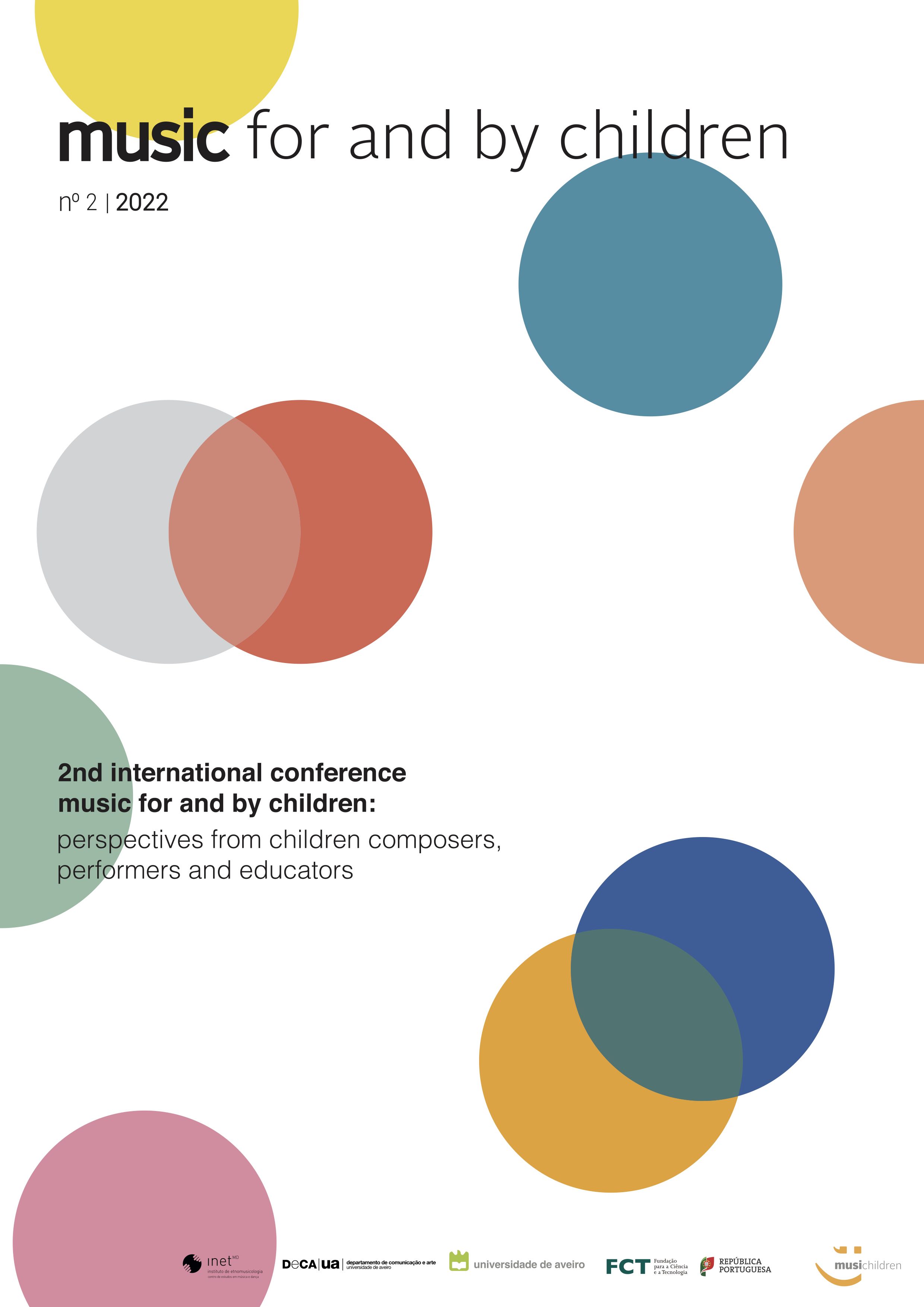Sound hunters
Listening to Soundscapes, playing with sounds
Abstract
This workshop is based on the pilot project “Sound Hunters: Towards a Pedagogy based on Listening and Sound Exploration in Early Childhood”, that the authors are implementing in a non-formal educational context in Portugal.
The workshop aims to sensitize participants to sound phenomena and discuss the meanings that are usually attributed to music and “music making”, by inviting participants to do a Soundwalk in the Conference Venue (inside and outside).
This workshop emerges from “a double call” that has recently been made to educators and researchers in the field of music education. A call that asks, on the one side, for a new perspective on the concept of “music” - that might include the entire soundscape that surrounds us (Landy, 2007; Solomos, 2020) - and, on the other side, for more inclusive and democratic practices in music education, that might create learning opportunities for all children (Benedict et al. 2015; Hess, 2017; Wright, 2015).
Departing from a roadmap previously prepared, and divided in 4 small groups, participants will be asked to pay close attention to the sounds surrounding them and to “capture” these sounds, using a set of audio recorders specifically designed to be used by children and adults that are not familiarized with music technologies. These tools will be explored previously by all participants with the guidance of the authors, during an introductory moment of the workshop. In the end, participants will share and listen together to the recordings made by the group. After this listening moment, the facilitators will introduce an activity in which participants will have the opportunity to engage in a musical improvisation, using not only the sounds previously recorded, but also diverse sounding objects related to the contexts in which the workshop is being developed. The workshop will end with a brief discussion about the activities and the ways in which they might have affected participants’ ideas about their sonic worlds and about music.
At the end of the workshop it is expected that the participants might be able to: (i) Identify sound as part of each person's sensory experience; (ii) Identify, describe and compare different sounds and soundscapes; (iii) Explore, in a creative way, different sound sources and tools related to the perception and appropriation of sound; (iv) Explore the idea of Sound Ecology, relating sounds with the diverse environments in which they usually participate.
This process, that seeks to emancipate participants from aprioristic conceptions of what is considered musically valid, is based on two essential premises: The idea that all people are capable of engage with sound and music, regardless of age, gender, physical or social condition; and the idea that music pedagogy should converge towards a practice that includes the entire sound spectrum that surrounds us, in the search to create meaning for the diverse sound worlds that we inhabit and to which we give life.
Target audience: Children (2-5 years old), their families, educators, musicians, researchers and general public.
Copyright (c) 2023 Music for and by children

This work is licensed under a Creative Commons Attribution 4.0 International License.





